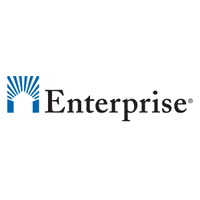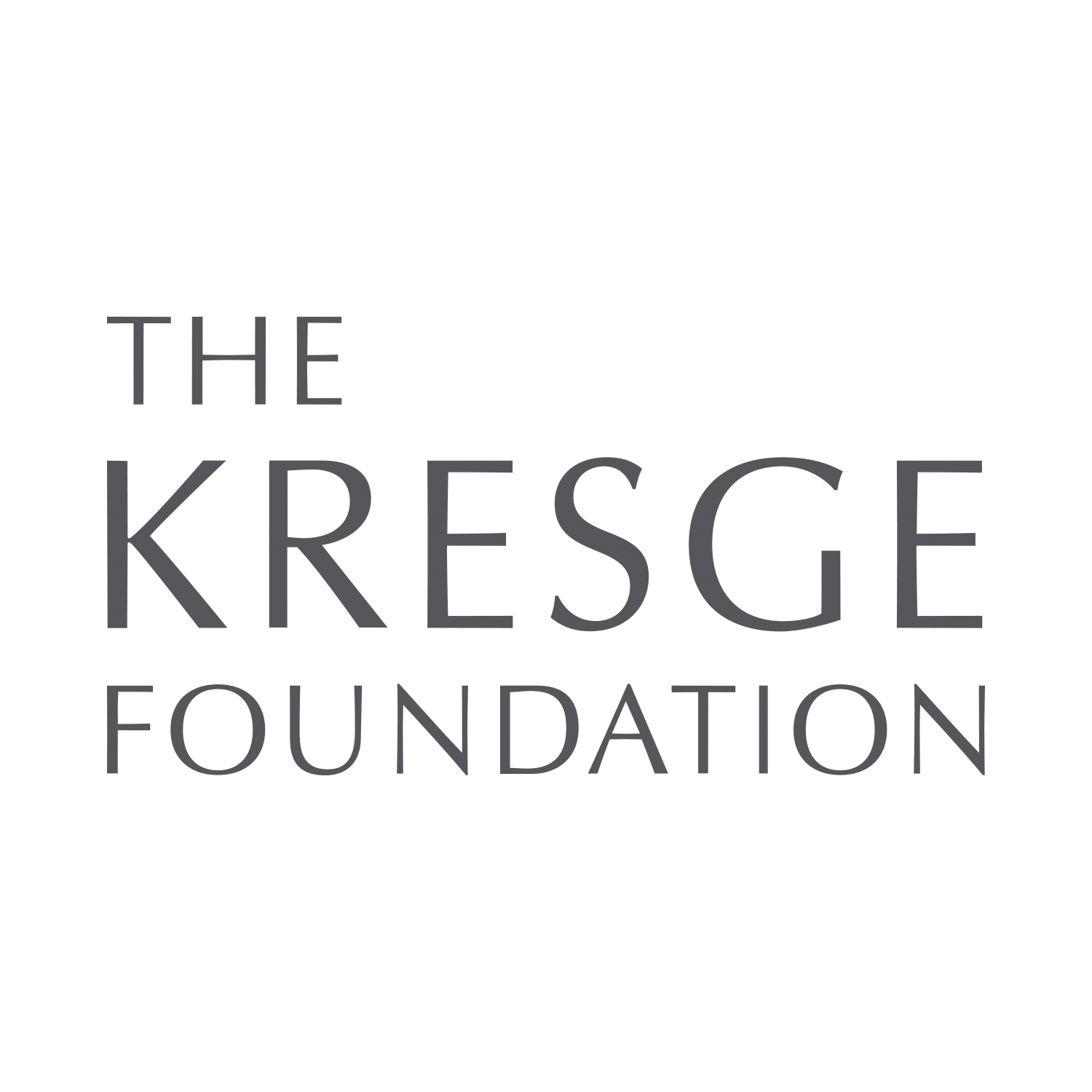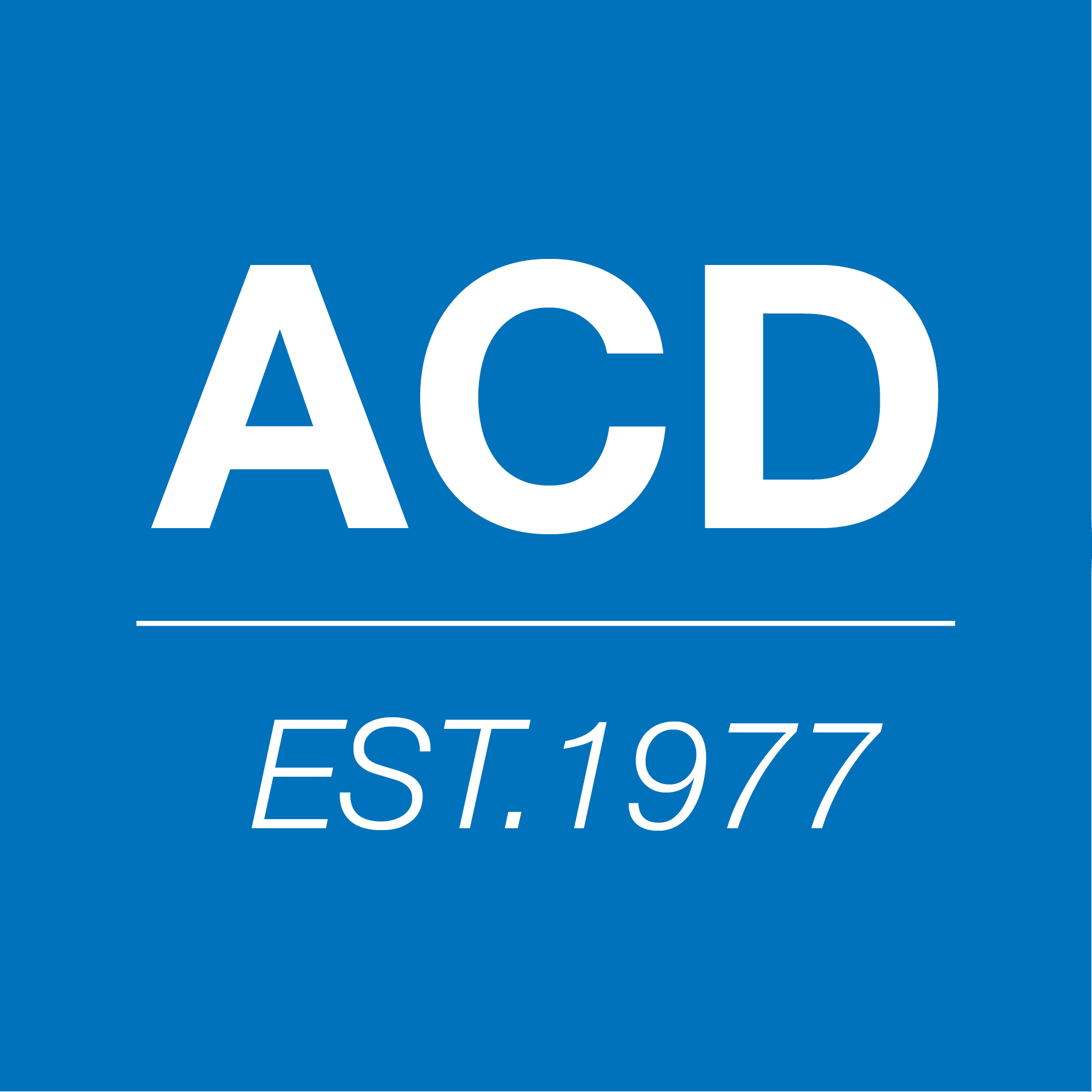June 27-29, 2019 Greenwood, MS
Host: Delta Design Build
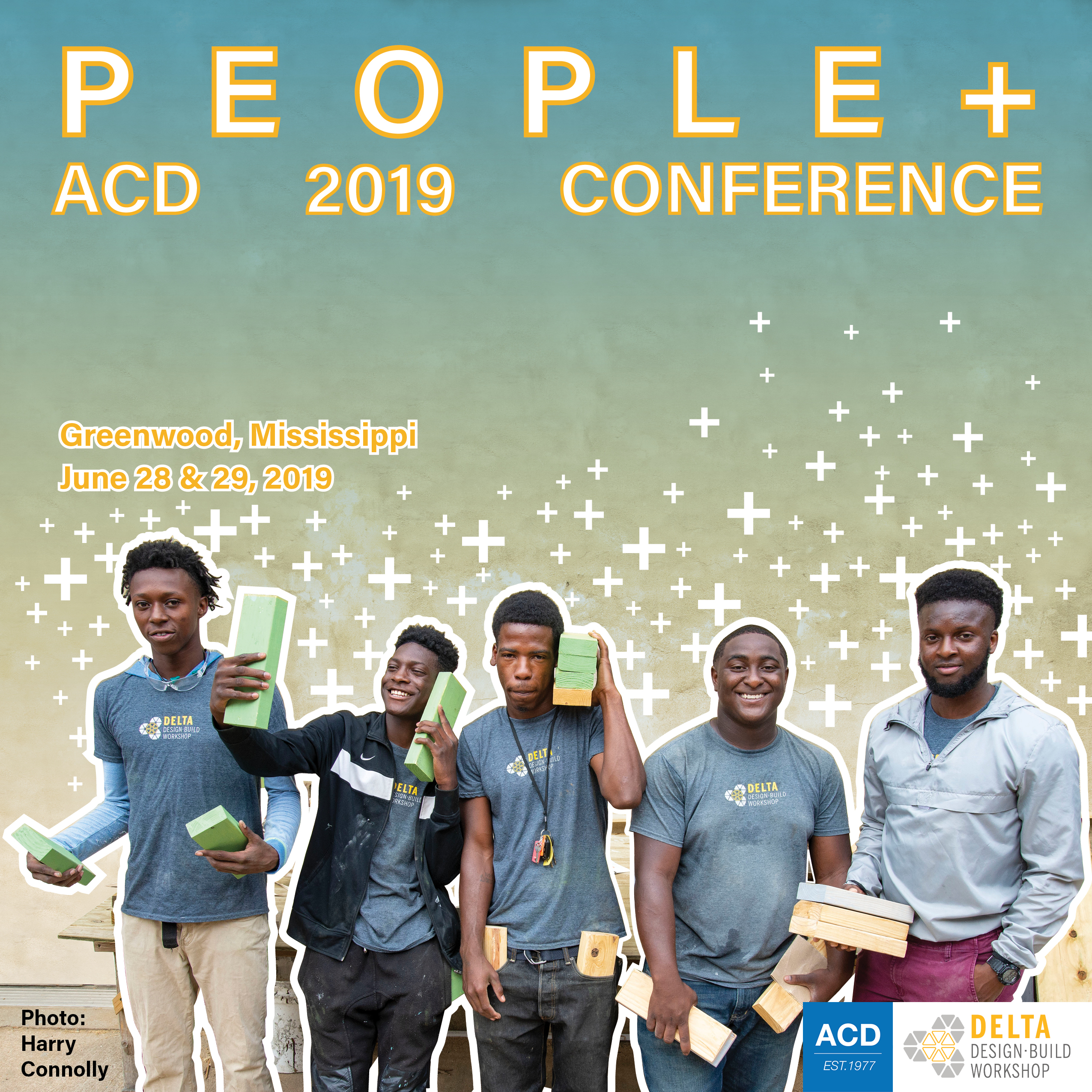
PEOPLE+
Community design work begins with an understanding of the power of people first. It is the web of relationships, history, narrative, mythology, and aspirations embodied in the people of a community that is the fabric of a place. This conference highlighted these experts on place; the people who work, celebrate, struggle, organize, worship, and live in the neighborhoods we live, work, and play in.
The work of community design is frequently focused on strengthening urban communities, and this work is vitally important, however the work that is being done in rural communities is equally as important and this conference is a call to expand the conversation to include both the rural and urban. Rural places can sometimes feel like the end of the line, particularly for marginalized communities. Policies made in Washington, D.C. or state capitals filter down to the organizations working in the neighborhoods who have to deal with the decisions of those who may, or may not hold their best interest at heart. Aren’t the residents, the locals, the radical few who stay put, sources of untapped breadths and depths of knowledge?
At PEOPLE+, we invited community designers to speak alongside stakeholders and to elevate the voices of the experts in place. This convening carved out space for the voices of people plus the designers who work on their behalf to hear each other.
+CONFERENCE TRACKS
- Equity: Systems of oppression and inequity disproportionately impact Communities of Color. How can community design actively work to build power and offset barriers to make more just places?
-
Engagement: Young people and vulnerable communities are valuable assets not often included in community decisions. What are ways to include these groups in design and community activism?
-
Resilience: In the face of adversity, our neighborhoods continue to bounce back. How do cultural heritage and people, as well as environmental conditions, impact a place’s ability to persevere?
-
Innovation: The practice of community design continues to evolve on large and small scales. What are alternative approaches to our practice that catalyze change?
+VALUES
· To re-center historically and currently marginalized communities, voices, perspectives, and expertise.
· To embrace the whole person, not just the professional identity.
· To foster space for critical dialog to support growth, acknowledge privilege, and allow for failure.
· To support non-hierarchical spaces that lift up knowledge of all kinds, lifting lived experience as equal to formal training.
· To create safer, braver, and kinder spaces.
· To acknowledge that design is inherently political and has political and social consequences.
· To provide intergenerational spaces and conversations that will strengthen our field.
· To demonstrate that authentic participation and shared power is critical for equitable impact.
+OUR HOSTS
The Delta Design-Build Workshop (Delta DB) is a social impact design and construction company. We operate on the premises that process is as important as product, waste is a social construct, your well-being and mine are intertwined, and a deep understanding of context is a necessity. We believe in working closely with communities and residents to produce positive, meaningful impact. Our team works directly with our clients (low-wealth households, non-profit partners and small municipalities) to build equity through the built environment.
Founded by Emily Roush-Elliott (a former Enterprise Rose Architectural Fellow) and Richard Elliott, Delta DB has been working in the since 2014 with a commitment to housing and community development in the Mississippi Delta. Delta DB works collaboratively with underserved populations to develop safe, healthy, and dignified affordable housing and pathways to economic opportunity. With a commitment to building economic stability, Delta DB invests in local workforce training for construction and sourcing materials and trades to reinvest into the communities we work.
Additionally, joining Delta DB as a host of ACD People+, Daniel Splaingard (another Rose Fellow alum) brings enthusiasm and introspection from the Beard + Riser Architects office also located in Greenwood, MS.
+SPEAKERS
Opening Keynote Address: Bill Bynum, HOPE Enterprise Corporation and HOPE Credit Union
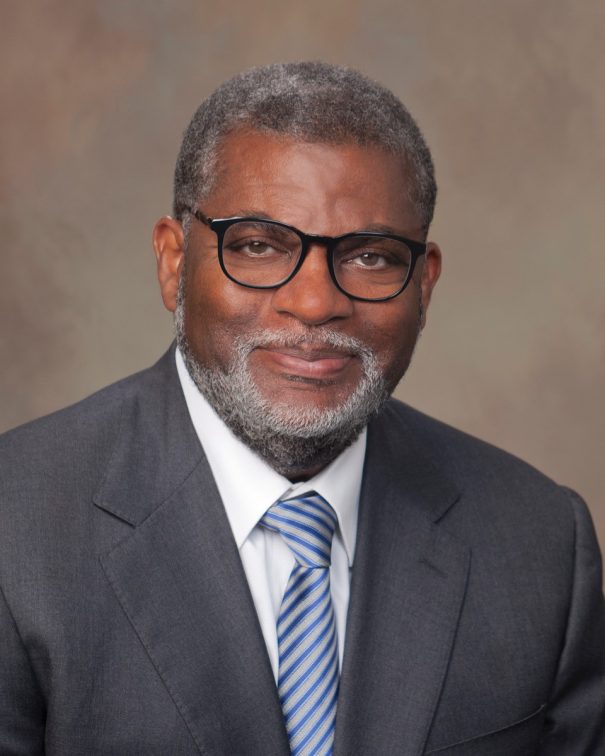
For more than three decades, Bill Bynum has worked to advance economic opportunity for disenfranchised populations. He began his professional career in North Carolina by helping to establish Self-Help, a pioneer in the development finance industry, and later built nationally recognized programs at the NC Rural Economic Development Center. In 1994, Bill moved to Mississippi to become the founding CEO of the Enterprise Corporation of the Delta, and in 1995 organized Hope Community Credit Union.
Today, HOPE (Hope Enterprise Corporation, Hope Credit Union and Hope Policy Institute), is a family of organizations that provides financial services; leverages private, public and philanthropic resources; and engages in policy analysis to fulfill its mission of strengthening communities, building assets, and improving lives in economically distressed parts of Alabama, Arkansas, Louisiana, Mississippi and Tennessee. Since 1994, HOPE has generated more than $2 billion in financing that has benefited more than one million people in of the nation’s most impoverished regions.
Closing Keynote Call to Action: Hollis Watkins, SNCC and Southern Echo
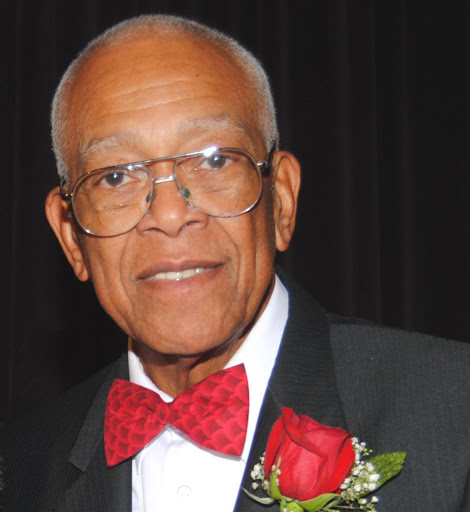 Hollis Watkins joined the organizing effort in Greenwood in 1962 and then initiated the Holmes County project. As an organizer, Watkins lived as sparsely as possible, always careful not take advantage of a community’s hospitality and to listen to voices at the grassroots. As a native Mississippian, he knew that a community’s first question would be “How long will you be here?” It stemmed from fear that outside leaders–even coming from another part of the state–would leave once violent reprisals began. But Watkins never left. He dedicated his life to human rights activism through SNCC and later Southern Echo, his grassroots community organization.
Hollis Watkins joined the organizing effort in Greenwood in 1962 and then initiated the Holmes County project. As an organizer, Watkins lived as sparsely as possible, always careful not take advantage of a community’s hospitality and to listen to voices at the grassroots. As a native Mississippian, he knew that a community’s first question would be “How long will you be here?” It stemmed from fear that outside leaders–even coming from another part of the state–would leave once violent reprisals began. But Watkins never left. He dedicated his life to human rights activism through SNCC and later Southern Echo, his grassroots community organization.
+COMMUNITY THINK TANK Preconference Event
Focused on theme of progress in the Delta, leaders and “doers” with local knowledge, history, and understanding from Delta communities were brought together with ACD’s community of change-makers, to discuss strategies, ideas, and solutions to help a community move forward.
Lunch Presentation, Annie Ledbury + Ryan Biles + Romona Taylor William + Rori Eddie Herbison
Plenary: Flipping the Script, Panelists: Ashley Wilson, Shakira Franklin, Alice Leflore Moderator: Emily Roush-Elliot
Engagement Track Speakers: Kelsey Oesmann, Will Doran, Sophie Morley + Hayford Shaw + Renae Adams
Equity Track Speakers: Alexis Smith, Charles Cross + Toni Henry, Shalini Agrawal (ACD Fellwoship Director) + Garrett Jacobs
Innovation Track Speakers: Ken Tomczuk, Maria Bergh, Meghan Skornia + Keith Covington + Rob Henig Bell + Chris Daemmerich
Resilience Track Speakers: Viviana Trevino + Diana Su, Heidi Schattin (ACD Board Member) + Elizabeth Engelbertson + David Perkes
Beyond Checking the Box: Community Engagement for Impact, Panelists: Amanda Loper, Kelsey Oesmann, Daniel Greenspan, Shakira Franklin Moderator: Kristen Chin
A Higher Level of Inclusive Play, Jill Moore
Designers of Color Birthing New Design Genres, Bucky Willis (ACD Board Member) & Josh Budiongan (ACD Board Member)
Do We Matter? What is the role of ACD and design professionals in solving the housing crisis and homelessness?, Kathy Dorgan
Empathy in Design: Understanding and Skill Building, Liz Kramer and Shalini Agrawal (Director of ACD Fellowship)
Decolonizing Practice: A Freedom School of Design, Chris Daemmrich
People, Places, Populations: Healing at Every Scale, Taylor Holloway (2019 ACD Fellow)
In a Tight Spot: Architects working to achieve excellence in highly constrained settings, Panelists: Belinda Steward, John Beard, Shannon Gathings moderator: Daniel Splaingard
Activating Community Through Design, Ifeoma Ebo (ACD Board Member) and Layman Lee
More than a Home: Remaking a Campus for Adults with Intellectual and Developmental Disabilities, Will Doran, Chris Starkey, Parke Pepper
Prioritizing the Pipeline: Strategies for a more diverse practice and profession, Ceara O'Leary (Past ACD Board Member), Bucky Willis (ACD Board Member), Josh Budiongan (ACD Board Member)
Where do Buildings Come From? Michael Grote
Pathways to Equity Fellow: Reflections from Year 1, Lindsey Yuen, Lucia Castello, Yarden Harari
Racial Justice and Design: Strategies from the Field, panelists: De Nichols, Joseph Kunkel, Kate Hanisian moderator: Gilad Meron
Elevating Engagement: Building Toward Equitable Evaluation of Community Process, Design & Education, Ceara O'Leary (Past ACD Board Member) & Ann Yoachim
ACD Quick Fires, Nicholas Satterfield, Sarah Habib (2019 ACD Fellow), Jasmine Humphries, Ifeoma Ebo (ACD Board Member)
Getting Things Done in Greenwood, Mayor Carolyn McAdams and former chief administrative office Thomas Gregory outlined five landmark projects that positively impacted the Greenwood community over the last decade.
+CONFERENCE SPONSORS
